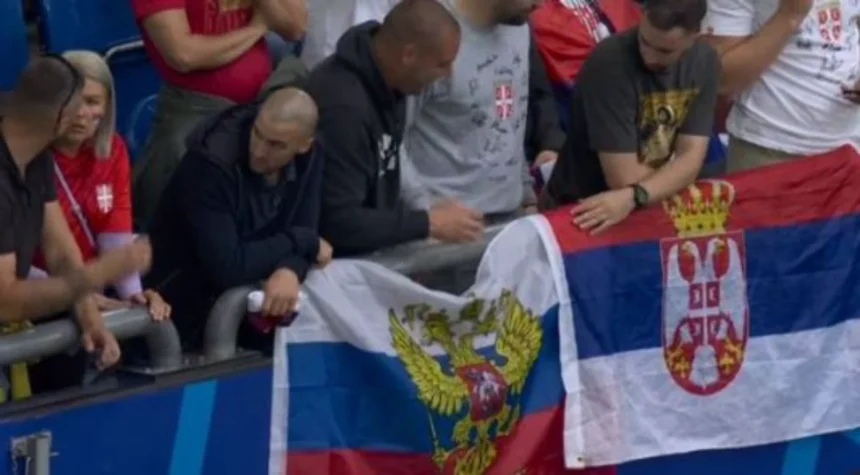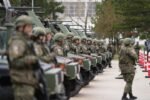Serbian President Aleksandar Vucic’s reactions to the refusal of the president of the European Commission, Ursula von der Leyen to meet with the Prime Minister of Serbia, Milos Vucevic, after shortly before his meeting with the Minister of economic development of Russia, Maxim Reshetnikov, did not stop even three days later.
On the eve of the meeting with the chairman of the EC on Friday, October 25, Vucevic published a photo and statement with a Russian official stating that “strengthening cooperation in the field of economy and other policies”is planned.
The president of Serbia tried to defuse this scandal with claims that Ursula von der Leyen allegedly could not cope with the pressure that would hit her on social networks.
“It’s not the fault of Milos Vucevic,” Vucic said.
He added that the bottom line is that Ursula von der Leyen cannot bear to post on networks in Brussels that someone has spoken to the Russians and then that they will talk to him.
Two days later, the speaker of the Serbian Parliament, Ana Brnabic, spoke on the subject, repeating Vucic’s words about the alleged weakness of the EC chairwoman.
She said the EC president “deeply respects” Serbian Prime Minister Milos Vucevic and that she has canceled the meeting with him due to strong pressure.
The fact that the president of the European Commission refused to meet with the prime minister of a country she visited because of his meeting with a Russian official, certainly speaks of a change of course and EU policy towards Serbia and above all towards European integration. That’s how Experts Assess Danas.
Goran Miletic, Civil Rights Director for Europe, says the cancellation of the meeting is a message that reactions to many unacceptable actions in Serbia can be much stronger than verbal ones.
“The public knows that the EU has imposed punitive measures in the case of Kosovo. Therefore, the idea of ‘both Russia and Europe’ is not realistic and this is the key message,” believes Goran Miletic.
As for the reaction of the authorities in Serbia to their ‘Russian brothers’, Miletic says it is for domestic use, for those who believe that Russia is actually the future of Serbia.
“This catastrophic idea of the importance of Russia, even after its aggression against Ukraine, is the product of the propaganda of those media that are neither independent nor objective. Unfortunately, they managed to present Russia as a brotherly country from a fairy tale, although its economic and political significance for Serbia is relatively small, so the government continues to signal to that part of the public that our path to Russia is safe, ” he said
Sonja Biserko, President of the Helsinki Committee for Human Rights in Serbia, says Serbia clearly shows that it does not intend to adapt to the EU standards needed for membership.
“Everything shows that Serbia is still balancing between the EU and now the BRICS. Serbia is said to be the only European example of “New neutrality”.







